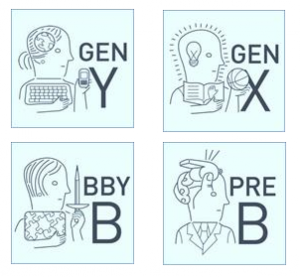As a professional speaker, from time to time, I receive helpful e-mails that are useful in illustrating my point about ethics, choices and consequences. One of my primary interests is Teen Ethics and how we, as leaders, influence the choices made by those who will inherit the future.
 A very interesting e-mail was sent entitled “The Generational Divide in Copyright Morality” written by David Pogue. The link is here for the full copy:
A very interesting e-mail was sent entitled “The Generational Divide in Copyright Morality” written by David Pogue. The link is here for the full copy:
http://www.nytimes.com/2007/12/20/technology/personaltech/20pogue-email.html?_r=1&oref=slogin
The article goes on to state: “It was early in 2005, and a little hackware program called PyMusique was making the rounds of the Internet. PyMusique was written for one reason only: to strip the copy protection off of songs from the iTunes music store.
The program’s existence had triggered an online controversy about the pros, cons and implications of copy protection. But to me, there wasn’t much gray area. “To me, it’s obvious that PyMusique is designed to facilitate illegal song-swapping online,” I wrote. And therefore, it’s wrong to use it.
Readers fired back with an amazingly intelligent array of counterexamples: situations where duplicating a CD or DVD may be illegal, but isn’t necessarily *wrong.* They led me down a garden path of exceptions, proving that what seemed so black-and-white to me is a spectrum of grays.
I was so impressed that I incorporated their examples into a little demonstration in this particular talk. I tell the audience: “I’m going to describe some scenarios to you. Raise your hand if you think what I’m describing is wrong.”
Then I lead them down the same garden path:
“I borrow a CD from the library. Who thinks that’s wrong?” (No hands go up.)
“I own a certain CD, but it got scratched. So I borrow the same CD from the library and rip it to my computer.” (A couple of hands.)
“I have 2,000 vinyl records. So I borrow some of the same albums on CD from the library and rip those.”
“I buy a DVD. But I’m worried about its longevity; I have a three-year-old. So I make a safety copy.”
With each question, more hands go up; more people think what I’m describing is wrong.
The exercise is intended, of course, to illustrate how many shades of wrongness there are, and how many different opinions. Almost always, there’s a lot of murmuring, raised eyebrows and chuckling.
Recently, however, I spoke at a college. It was the first time I’d ever addressed an audience of 100 percent young people. And the demonstration bombed.
In an auditorium of 500, no matter how far my questions went down that garden path, maybe two hands went up. I just could not find a spot on the spectrum that would trigger these kids’ morality alarm. They listened to each example, looking at me like I was nuts.
Finally, with mock exasperation, I said, “O.K., let’s try one that’s a little less complicated: You want a movie or an album. You don’t want to pay for it. So you download it.”
There it was: the bald-faced, worst-case example, without any nuance or mitigating factors whatsoever.
“Who thinks that might be wrong?”
Two hands out of 500.
Maybe all this is obvious to you, and maybe you could have predicted it. But to see this vivid demonstration of the generational divide, in person, blew me away.
I don’t pretend to know what the solution to the file-sharing issue is. (Although I’m increasingly convinced that copy protection isn’t it.)
I do know, though, that the TV, movie and record companies’ problems have only just begun. Right now, the customers who can’t even *see* why file sharing might be wrong are still young. But 10, 20, 30 years from now, that crowd will be *everybody*. What will happen then?
Questions:
- Do you think “file sharing” is unethical?
- Should a persons creation be copyright protected?
- Is reprinting with acknowledgements a violation of copyright protection – as has been done above?
Most Important Question:
Should we assume that ethical values change with technology and generational attitudes?
Since technology makes it easy to copy and paste perhaps protection or compensation for artistic expression needs to change as the ethical attitudes about its use changes.
Your comments are welcome.


